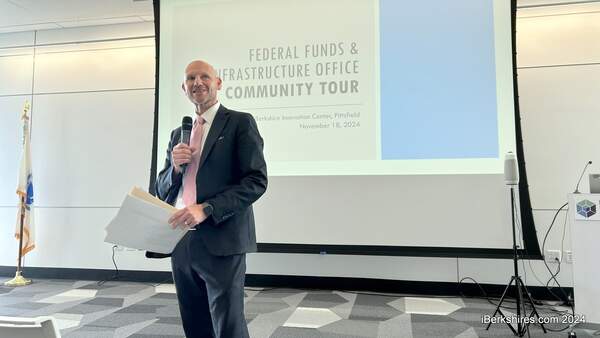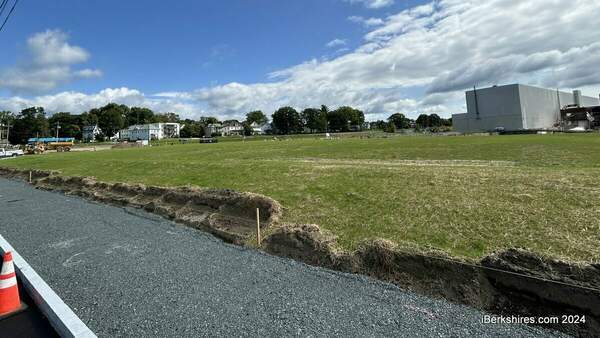Governor Files $282 Million Supplemental Budget
BOSTON — The Healey-Driscoll Administration filed a $282 million gross / $154 million net Fiscal Year 2023 (FY23) supplemental budget to address needs across the state's family emergency shelter system.
Currently the system is at capacity and facing elevated levels of demand by families facing homelessness.
"Our administration is committed to ensuring that families in Massachusetts have access to the shelter, health care, education, food assistance and other services they need, and that our communities have the resources to provide them," said Governor Healey. "The bill that we're filing today would extend urgently needed funding for several critical programs – Emergency Assistance, universal school meals and SNAP – to continue to provide these services. We look forward to working closely with our partners in Legislature to meet this moment and deliver for the people of Massachusetts."
The budget also extends two food security programs that will soon run out of funding.
The bill also proposes $21.9 million to support schools through the end of the 2023-2024 school year. The funding is targeted toward the communities experiencing a large influx of families with school-aged children due to state shelter placements – in particular, by providing financial support to schools and school districts for the costs associated with placing new students in local schools. This bill also includes funding to maintain a temporary central intake center where families can receive timely case management services and health assessments during their first few days in shelter and for costs associated with other necessary health assessments and immigration-focused case management.
"Frontline providers and advocacy organizations have been doing heroic work to provide for families arriving in Massachusetts, but they need continued funding and support. Governor Healey and I are committed to working in close partnership with them to secure this needed funding and continue supporting our immigrant and refugee communities," said Lieutenant Governor Driscoll. "Through this bill, we're also seeking to infuse more funding to programs that make sure kids don't go hungry at school and to help families afford their groceries. These are essential programs that must be maintained."
The funding to support emergency shelters and related services would be authorized for DHCD as well as other agencies that play a role in responding to this crisis, and would work in combination with a $20 million appropriation in the economic development bill enacted in November 2022.
The bill proposes $85 million to support the Emergency Assistance program and other necessary services for eligible families in need of emergency shelter in the Commonwealth. With the shelter system currently at capacity, $64.9 million of this funding would support the Department of Housing and Community Development's (DHCD) efforts to expand the number of units available to provide safe, temporary shelter to vulnerable families facing homelessness. This includes investments in housing infrastructure and the shelter provider workforce that helps to stabilize and rehouse families. Based on current caseload projections, more than 1,100 shelter units over baseline capacity are needed, and the funds in this bill are needed to keep pace with this demand.
"The Commonwealth's Emergency Assistance program provides vital support for families in crisis who need housing stability and enables the Commonwealth to meet its statutory requirements as a right-to-shelter state," said Housing and Economic Development Secretary Yvonne Hao. "With the additional resources from this legislation, we can continue our work in partnership with providers and non-profits to meet the increased needs of the shelter system and support families across the Commonwealth."
The bill filed also proposes $130 million to create an offramp from the federal extra Supplemental Nutrition Assistance Program (SNAP), a benefit that the federal government began providing to SNAP recipients during the COVID-19 pandemic and recently announced would end in March 2023. To bridge the abrupt end of this program for more than 630,000 Massachusetts families, the Administration proposes providing a supplemental SNAP allotment to recipients equal to 40 percent of the previous federal benefit for three months. Additionally, $2 million of this funding would be dedicated to reimbursing certain victims of SNAP benefit theft, also known as "skimming." This initiative would be supported by repurposed enhanced federal Medicaid reimbursements, resulting in an approximately net $0 cost to the Commonwealth.
"The extra COVID SNAP benefits have provided critical support for individuals and families to buy food, and have also indirectly supported our local grocery stores and farmers," said Acting Health and Human Services Secretary Mary A. Beckman. "The Healey-Driscoll Administration is aiming to be a leader among states in providing households with an offramp to the abrupt end of these extra benefits and will continue to be a food security leader through systemic initiatives like this."
Finally, this bill includes $65 million to extend the universal school meals pilot program through the end of the 2022-2023 school year, as was intended when included in the FY23 operating budget. This program allows all K-12 students in Massachusetts to qualify for free school meals. Without the additional funding in this bill, the program will have depleted its appropriation in March, before the end of the school year.
Tags: budget,















